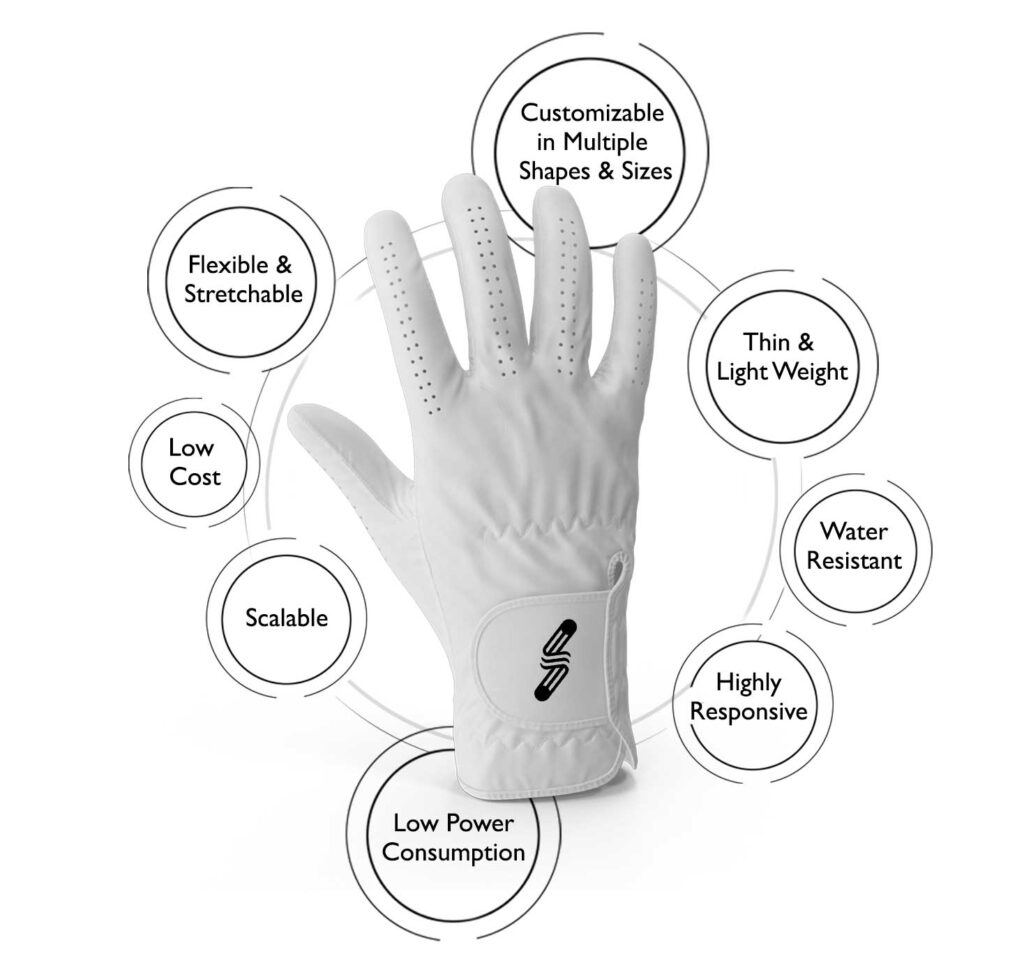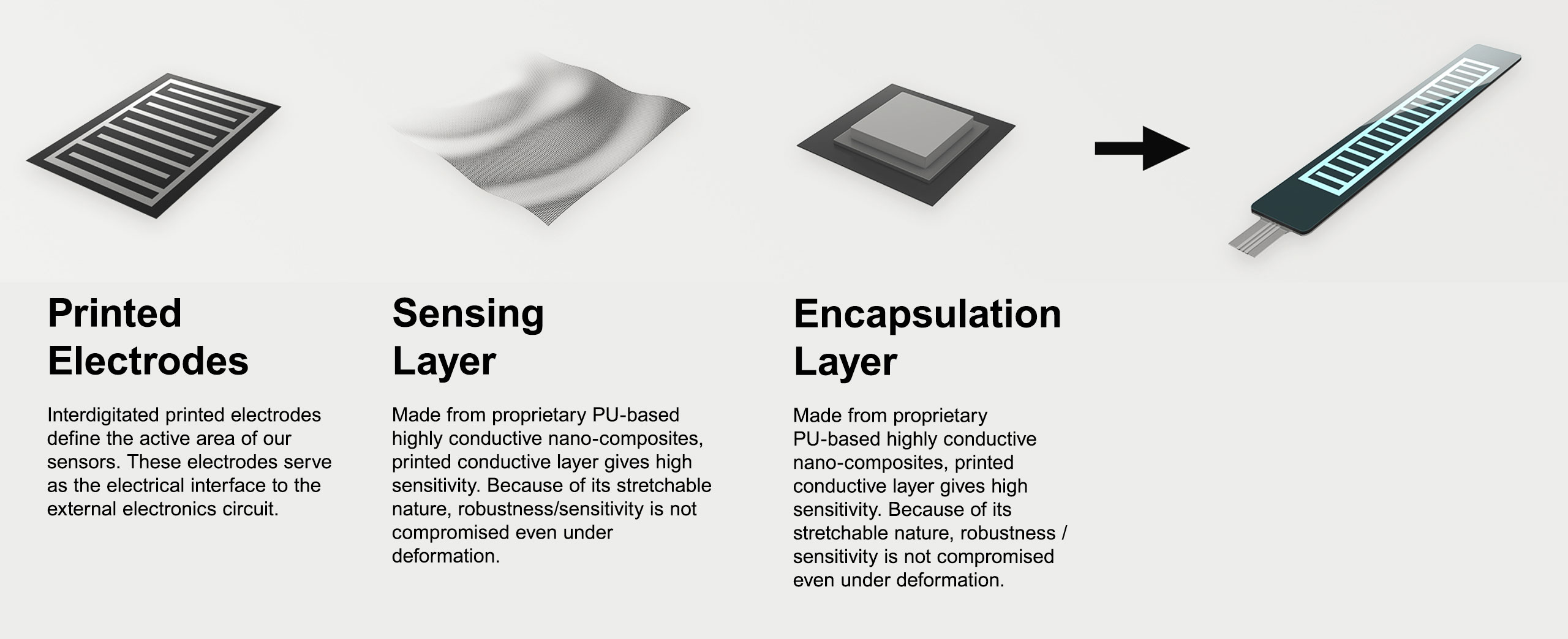Polymer-based sensors fall into 2 categories, flexible and stretchable, with the latter having properties to be elastic and stretchable. The nature of these sensors particularly the stretchable sensors allows the capture of strain, range-of-motion and gripping force. The soft nature of these sensors makes it easy for them to be placed on most parts of the body regardless of the joints’ angles and the body contours.
StretchSkin is working on both strain and force sensors, which aims to develop as a single sensor unit.
StretchSkin’s stretchable electronics take on a hybrid combination of soft functional materials, compliant membranes, sensors, and integrated functional chip components to achieve mechanical reliability and sensitivity along with high flexibility and stretchability attributes. We use high-performance nano-materials, nanowires, nanoparticles in a polymer matrix due to its excellent electrical and mechanical properties. At the same time, it also has biocompatible qualities making it suitable for the human skin. A conforming contact will allow continuous, real-time monitoring of body movements and detect a subtle change of motion. Apart from motion detection, StretchSkin soft sensors also detect force.
Connectivity, Data Collection & Analysis
We develop custom low-power readout electronic circuits that are optimized to acquire data from StretchSkin soft sensors for various use-cases. These readout circuits are designed to compensate for the noise effects. Communication between soft sensors to any external device is done through StretchSkin’s API and data transmission is done through Bluetooth Low Energy (BLE). Our sensor data analysis algorithms use machine learning and data science to derive important information about the human interaction with the sensor surface.



